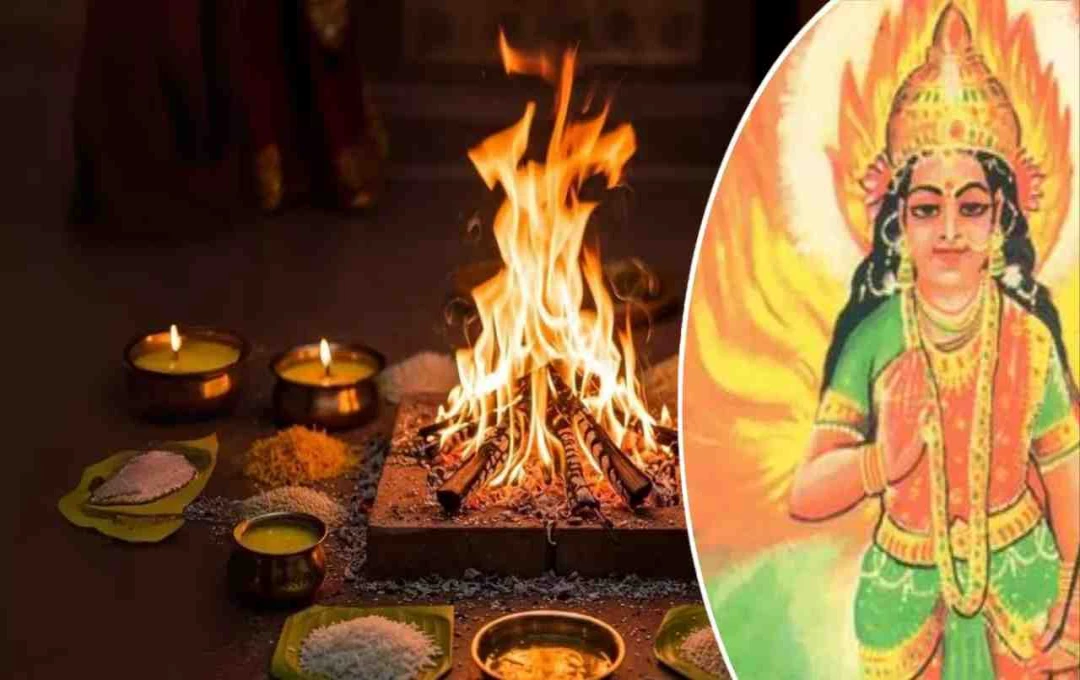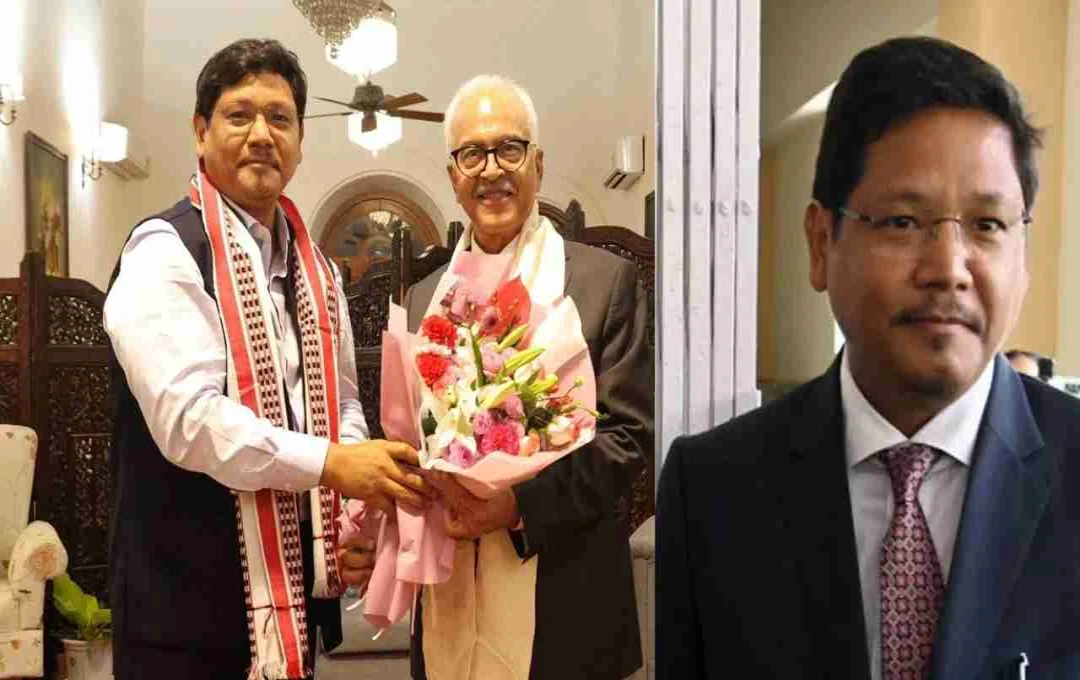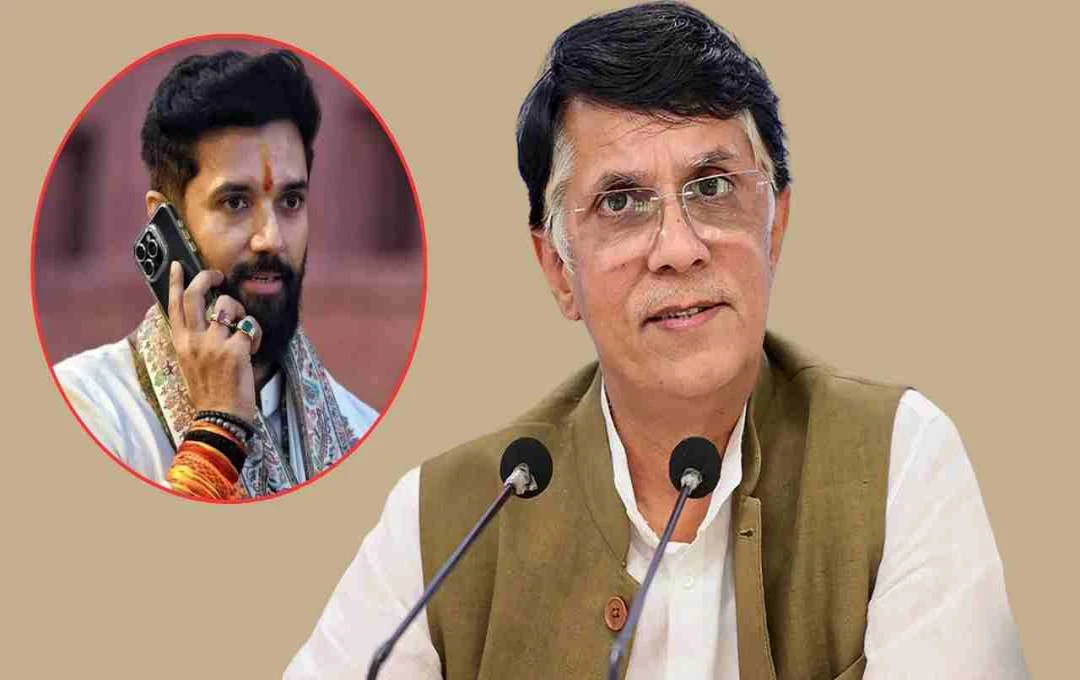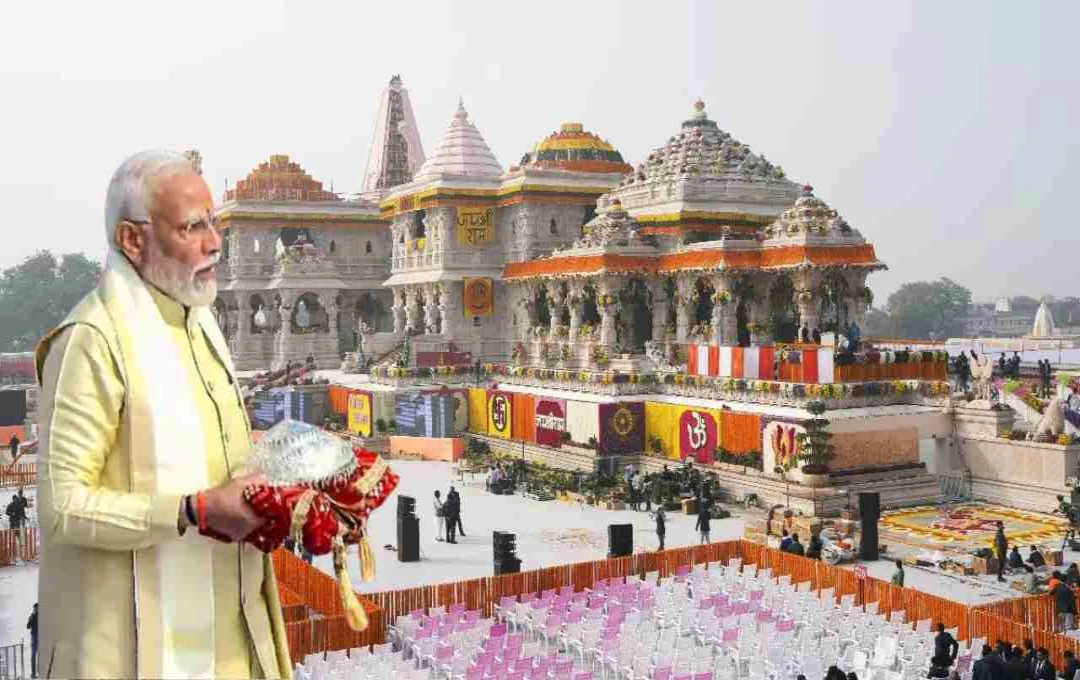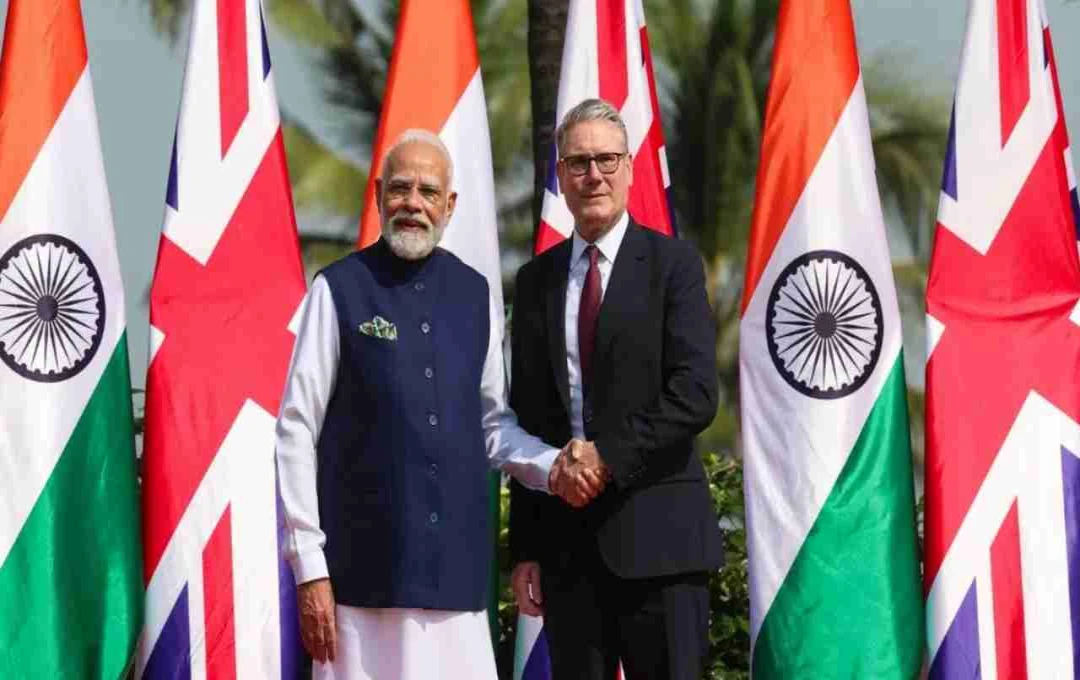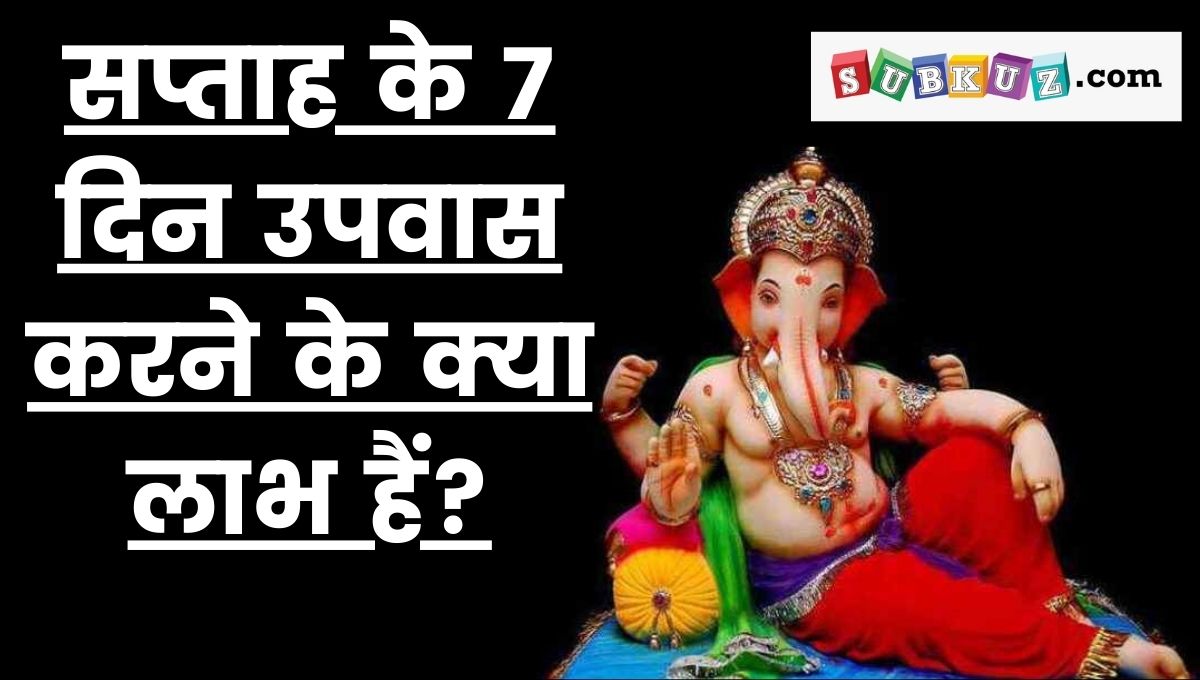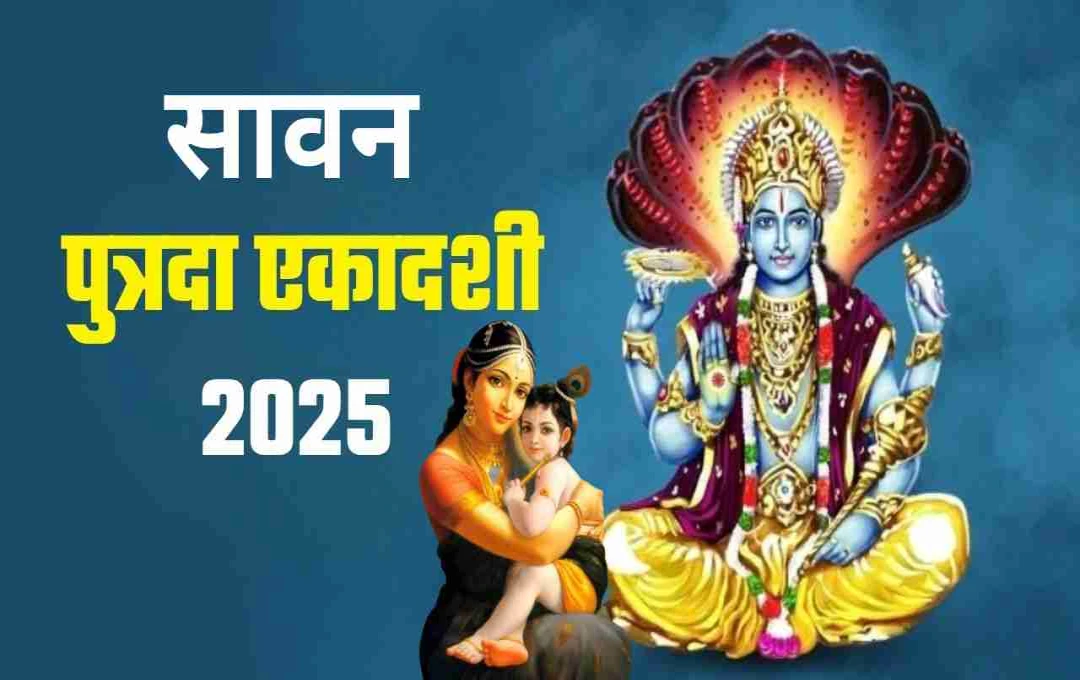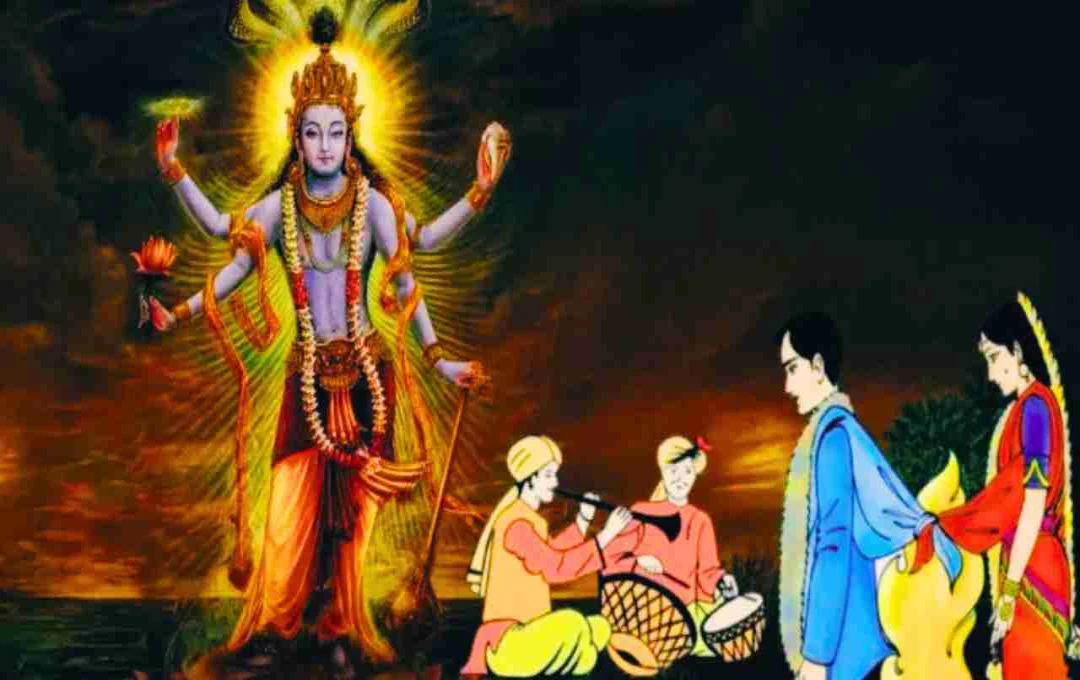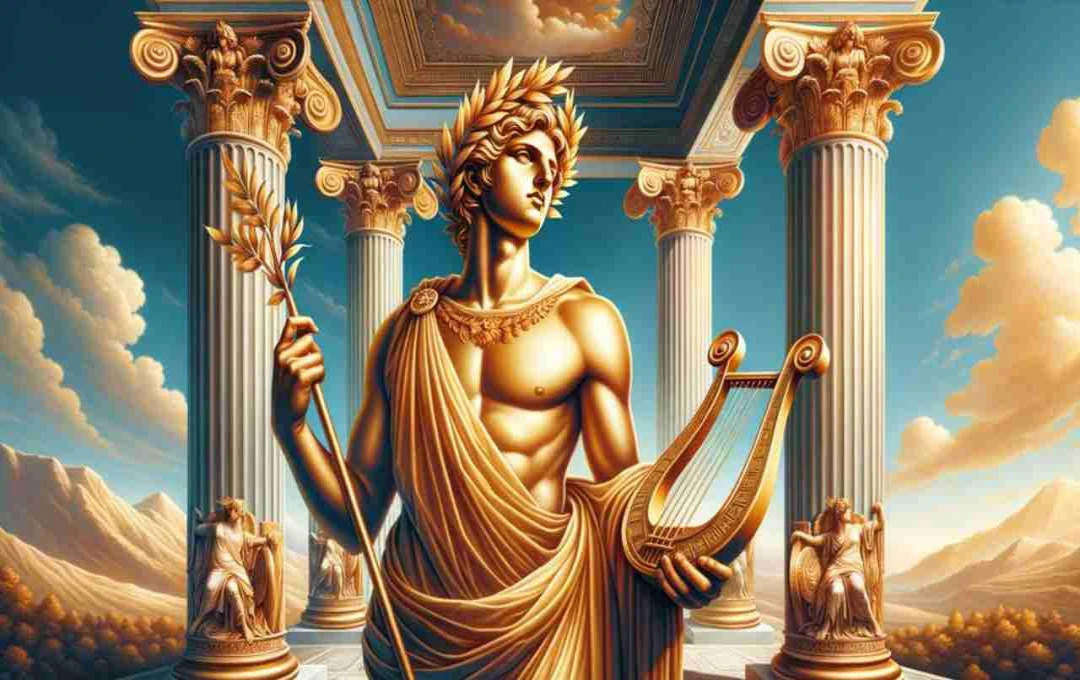In Hinduism, Swaha Devi is considered the wife of Agni Dev (the god of fire) and an integral part of every Yagya (sacrifice) and Havan (fire ritual). It is believed that no mantra or offering reaches the deities without the utterance of 'Swaha'. Therefore, she is worshipped as a bridge between humans and the gods.
Swaha Devi: In Hinduism, Swaha Devi holds immense significance. According to mythological beliefs, she is the wife of Agni Dev and her presence is considered mandatory in Yagyas and Havans. Without the utterance of 'Swaha,' neither the mantra is complete nor the offering reaches the deities. This is why, in every Vedic ritual, Goddess Swaha is invoked and worshipped as a bridge between humans and the gods.
The Divine Power that Completes Every Mantra and Offering
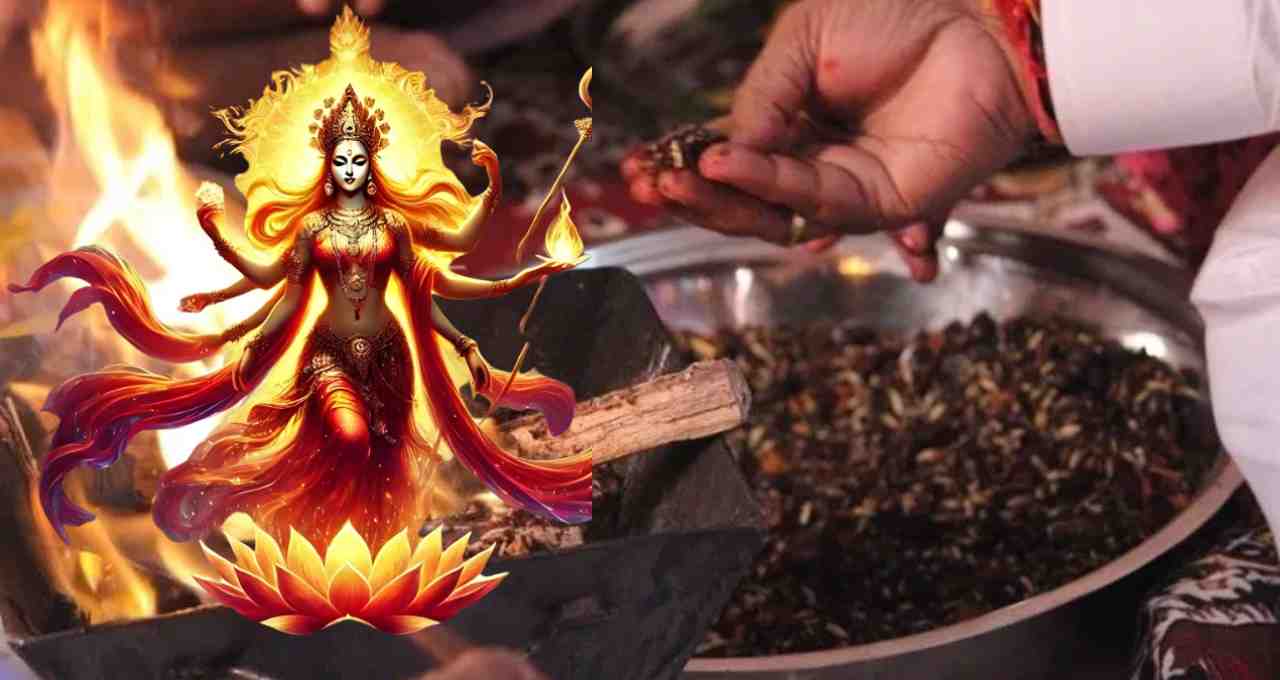
In Hinduism, every god and goddess has their own specific role and importance. Just as worship is considered incomplete without mantras, similarly, Havan and Yagya are considered incomplete without the utterance of Swaha. It is believed that Swaha Devi is the wife of Agni Dev, and without her name, any fire ritual remains incomplete. This is why the utterance of the word "Swaha" is considered mandatory in every religious ritual, especially Yagyas and Havans.
Mention of Swaha Devi in Mythological Tales
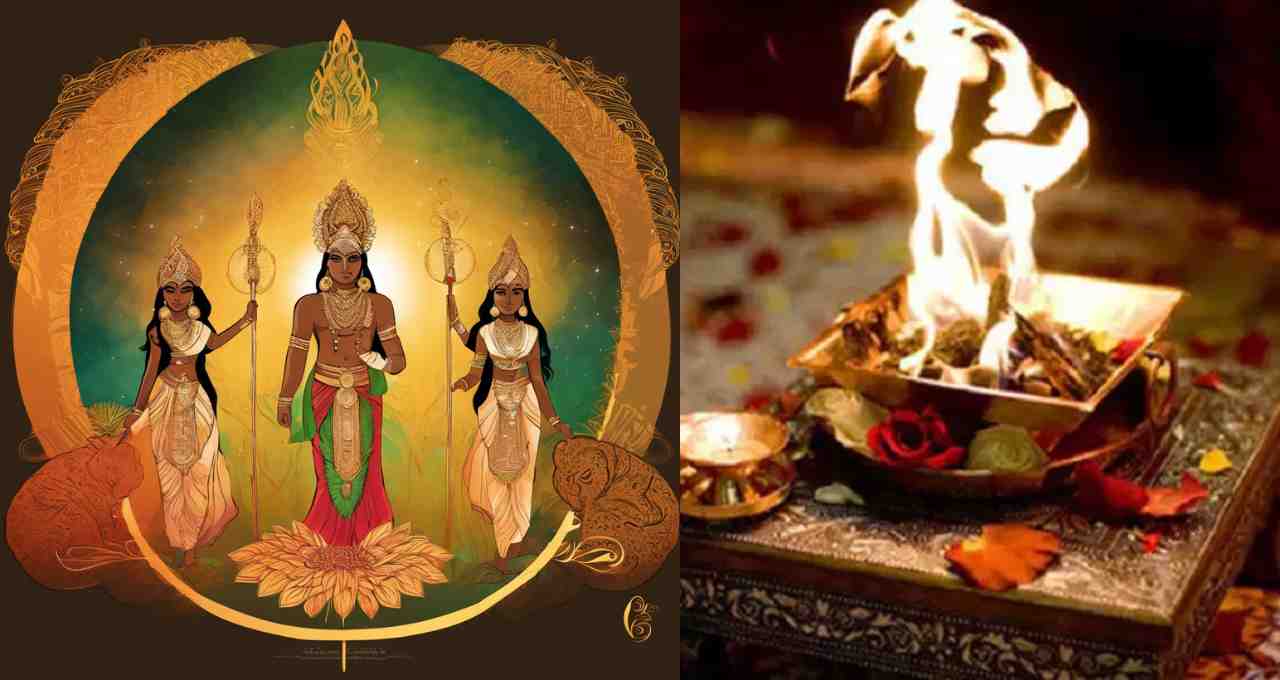
The importance of Swaha Devi is described in detail in Indian Puranas and Vedic texts. She is considered the wife of Agni Dev, and her name is associated with every Yagya and Havan. In Sanskrit, 'Swaha' is composed of two words—'Su' (good/well) and 'Aah' (to invoke/to reach). Its literal meaning is "well delivered." This signifies that the offering given in the fire has reached the deities correctly. In some tales, Goddess Swaha is described as the daughter of Daksha Prajapati, while in others, she is considered the power of the fire element.
Why is the Utterance of 'Swaha' Necessary?
According to religious beliefs, saying 'Swaha' in Yagyas and Havans is not just a tradition but mandatory. It is believed that Swaha Devi is the divine power that delivers the offering to the deities in the correct form. That is why no mantra, Yagya, or Havan is considered fruitful without her invocation.
Belief Associated with the Vedic Period
- Food for the Gods: In the Vedic period, Yagya was considered a way to offer food to the gods. The offering given with the utterance of "Swaha" along with the mantras directly reached that deity.
- Completeness of Mantras: Uttering 'Swaha' at the end of every mantra empowers the mantra and makes it acceptable to the deities.
- Blessings of Agni Dev: Since Swaha Devi is the wife of Agni Dev, offering oblations by taking her name also pleases Agni Dev and makes the ritual successful.
Spiritual and Scientific Significance
Beyond mythological beliefs, 'Swaha' also has spiritual and psychological significance. When a person utters 'Swaha,' they relinquish ego and accept that their every offering is dedicated to a higher power. This is why Goddess Swaha is considered a bridge between humans and the gods, and without her, the sacred act of Yagya is considered incomplete.
